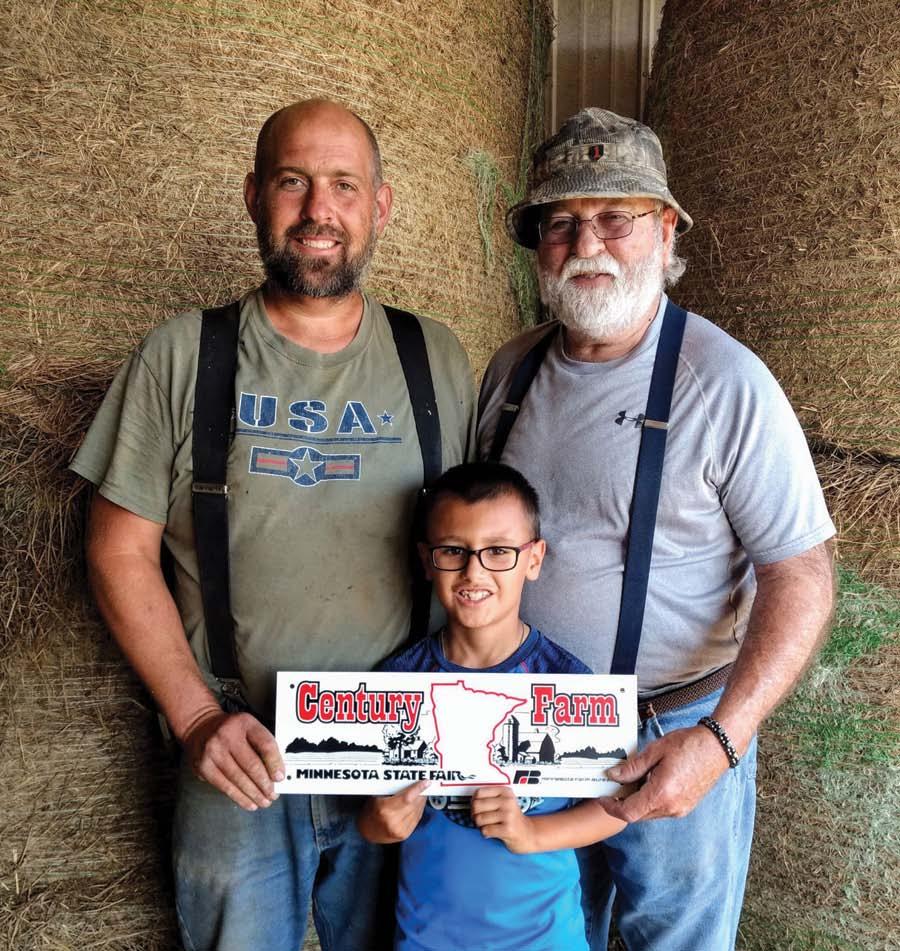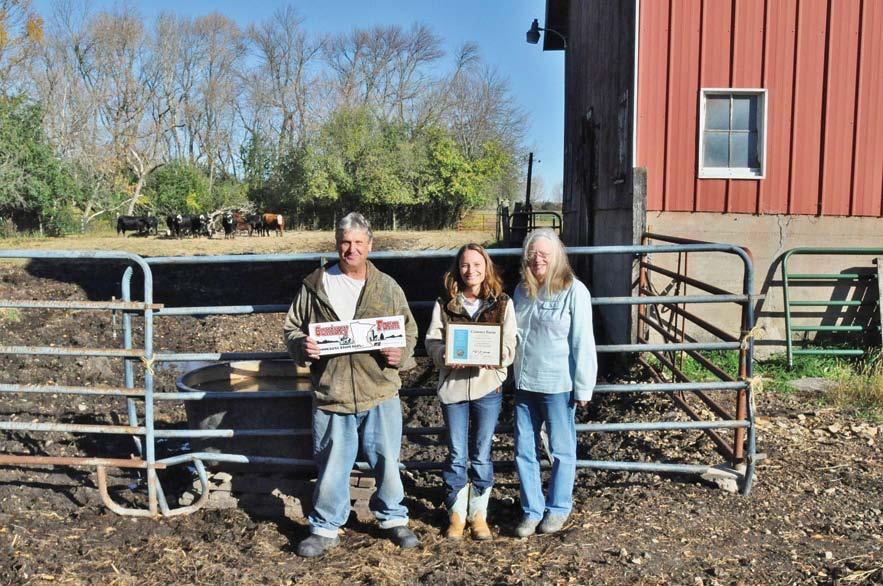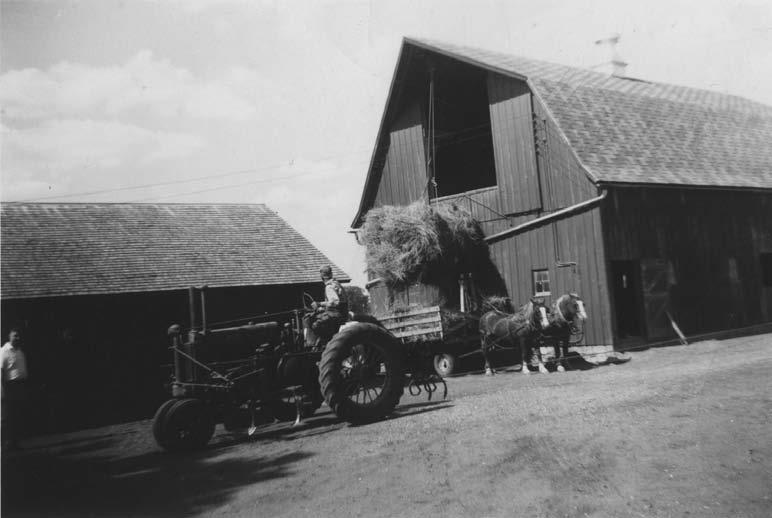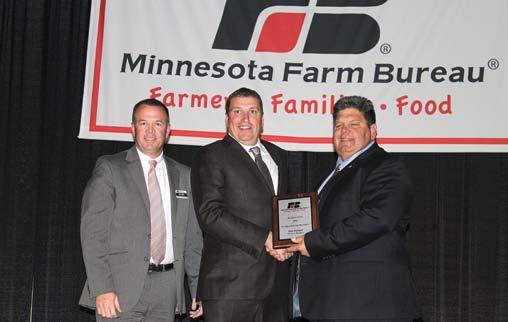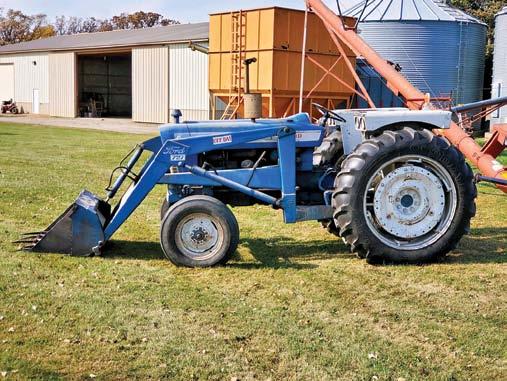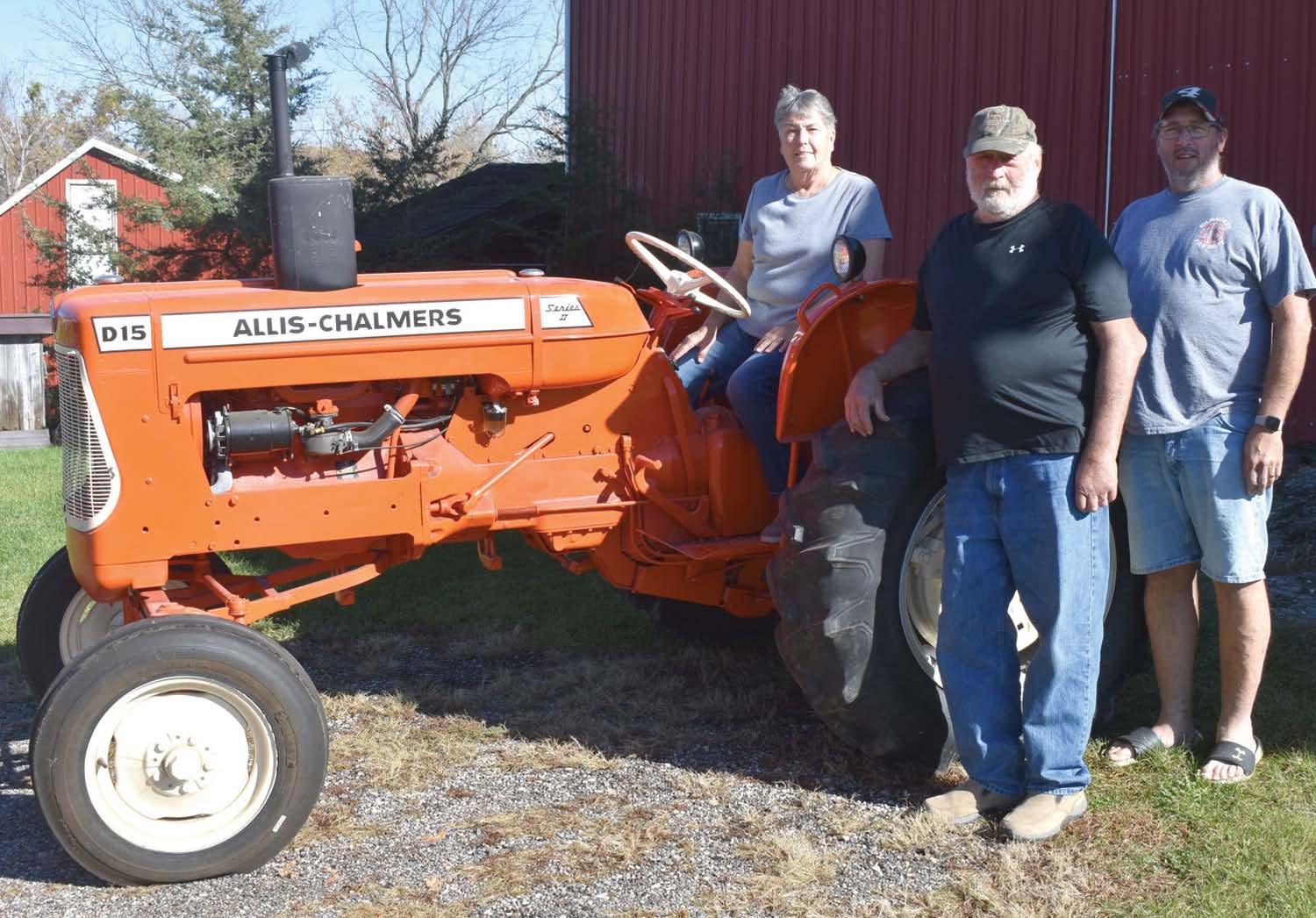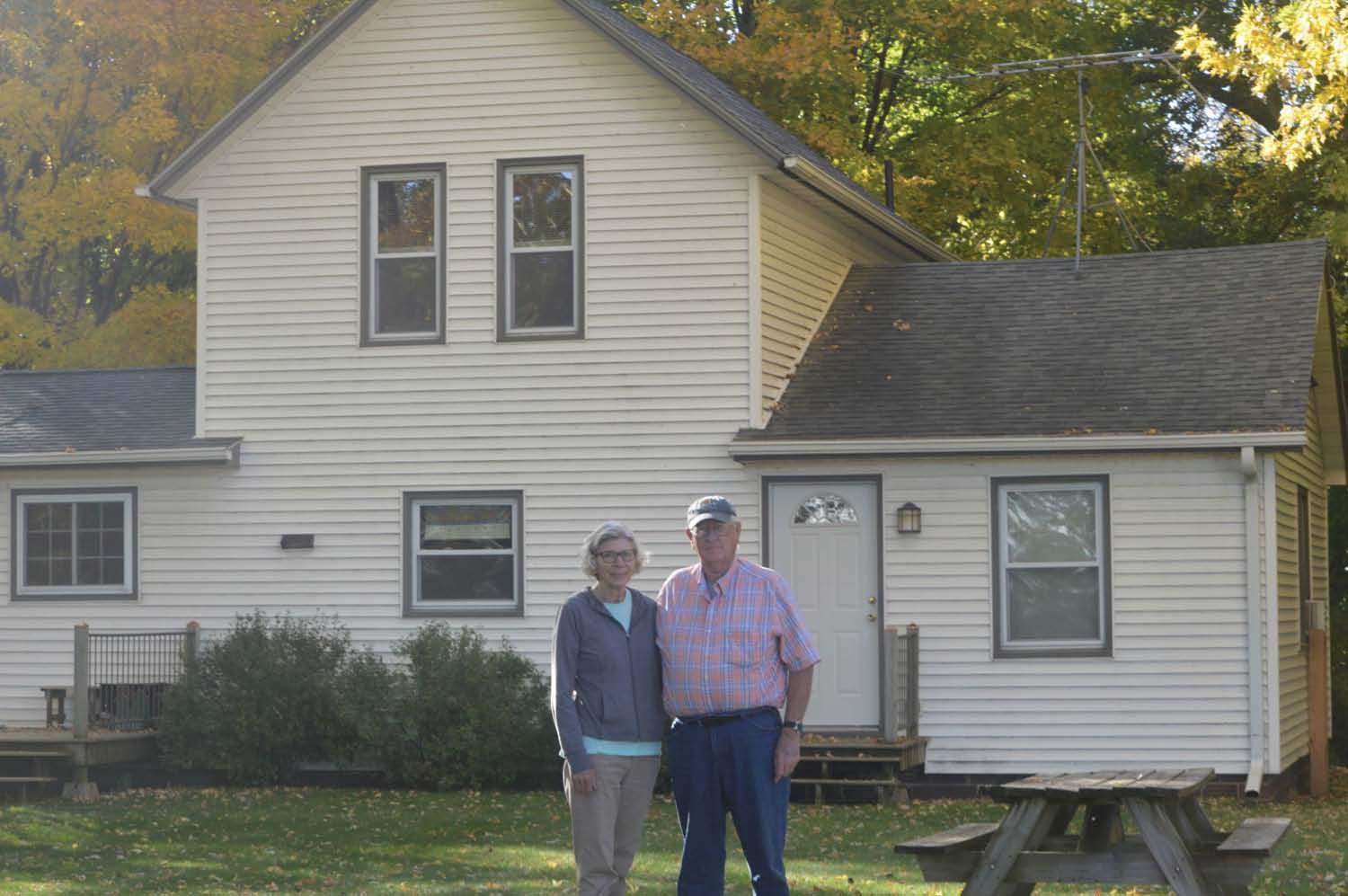PAGE 10
Century Farms
October 2020O
Family farm hits century mark just before long-time owner dies By PHILIP WEYHE philip.weyhe@apgsomn.com
at my uncle, as a 93-year-old living all along, learning how to farm.” there so long, he was looked at as the head of the farming community in In 1938, a fire took down the famLE SUEUR — Laying in a hospital that area.” ily’s original home. A corn husk got bed, 93-year-old Ralph John King caught in a wood stove and burned was shown a certificate, signed by History the house down. Hattie ran off to Gov. Tim Walz, that indicated his call the fire department, while John family farm, established by his par- King’s parents purchased the farm ran in to grab important insurance ents in 1920, was officially a century from Henry and Ida Thelemann in papers and other items. The family farm. A moment of great pride, it 1920 at a cost of $300 per acre. The lived with relatives until they — with came just weeks before his Sept. 29 80 acres grew corn, barley, alfalfa and some outside help — could get a new death. meadow hay, and those staple crops home built. stuck around through its history. For Ralph, life was always centered Also on the farm over the years, there “The community really pulled toaround that 80-acre homestead at have been chickens, dairy cows, pigs, gether to rebuild the new home for 25968 Lexington Road in rural Le horses, dogs, cats and geese. the family,” Damerow said. “It was Sueur County. a significant moment for them. My “They lived on that farm from 1920 uncle (Ralph) told stories about how “In those last months, on one of my on and raised the family,” said Dam- they were building in the winter, and they had to heat the nails during convisits, we took a ride out to the farm erow of her grandparents. struction. My mom talked about losand it was probably one of the happiest days of the end of his life,” said John and Hattie King raised four ing all her little dolls and things like Ralph’s niece Barb Damerow. “He re- children — three girls and a boy. that. They were all little kids.” Ralph King was actually part of tripally loved that farm.” lets, along with one of his sisters; Ralph was more than ready to take Ralph’s parents, John and Hattie, ran but the third triplet, a brother, died over by the time his father died in the farm for 48 years before John shortly after birth. The kids grew up, 1968. He maintained the 80 acres, died and Ralph took over. Ralph helping out in the fields, in the house not shrinking or growing the farm. He was the full-time farmer on the then presided over it for another 52 and with the animals. land until he was 80, when he started years (renting it out in the last several years). In February, Ralph started to “I think they really enjoyed growing renting out some of the land. experience some health problems, up on the farm,” Damerow said. “I and with the COVID-19 pandemic think the girls didn’t see farming in There was never too much stress for impacting life by March, any plans to their future. They all left and moved Ralph. celebrate the family farm’s achievement were put on hold. Unfortunate- FARM FACTS ly, the opportunity to celebrate with • Purchased by John and Hattie King in 1920 for $300 per acre Ralph was lost, as his health deteriorated and he died by the fall. • Took over by Ralph King in 1968 While it was painful to lose her uncle, Damerow was grateful for the time she and her five children got to be with him, and happy that he was able to see the century farm certificate before his passing. Ralph had no children of his own, and the future of the farm is still to be determined, but that won’t impact the past 100 years. “I think there was a lot of sadness when he died,” Damerow said. “A lot of people will always be like ‘That’s the King farm.’ I think they looked
• Rented out in 1980 • Located at 25968 Lexington Road, Le Sueur • 80 acres, growing corn, wheat, oats, barley, alfalfa and meadow hay
B b
J g i d
Th i i l
I y C s F Th h b
The King family farm in rural Le Sueur County, photographed in the 1940s. The King farm was purchased by John and Hattie in 1920 and then transferred to their son John in 1968. (Photo courtesy of Barb Damerow) mom talked about that a lot, too,” Damerow said. “He was a very intelligent farmer. There was never any financial worries. He was definitely the type of farmer that helped out a lot of the other farmers, too.”
“ t a
B a s M a t a c c
After taking over the farm, Ralph met Carol, a Le Sueur schoolteacher, and the two married and lived together until her death about five years ago. Community leader There are a number of longstanding family farms in the area where the King farm stands, and it created a community where people helped and shared with one another.
Chris Wacker runs a farm about a mile and a half across the fields, • Animals raised include cows, chickens, pigs, horses, dogs and cats as the crow flies. He was 33 years younger than Ralph, but ever since he was about 10 years old, he knew to the cities to have their own careers, get married and raise their families. “My uncle enjoyed the openness of the longtime farmer well. But after my grandpa died, my uncle the farm and watching the sun rise took over and continued farming. He and set, and he liked to watch the “Everybody teachers everybody had been working with my grandpa, stars and see the storms come. My some things out in the country,”
Th s F g d a
Work gets done on the King family farm in the 1950s. (Photo courtesy of Barb Damerow) H Wacker said. “We picked corn to- so when people took ear corn and putt gether. We made wood in the win- it in cribs, he came over and shelledc ter time together. When he sold his that to take the corn off the cob to sello cows, I rented his barn to put hay it it in town,” Wacker said. “It meant at in and everything. We got along real lot. You can always count on Ralph.S well. Ralph was a heck of a good guy.” He’d be there.” J t According to Wacker, Ralph was very Dave Mager is another neighbor to generous with his time and his equipW ment. w t “He had the corn shelling machine, Continued on page 18 S
King

